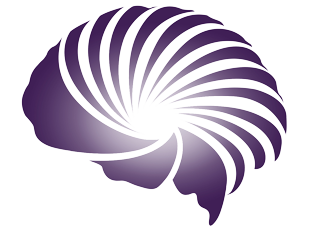Stress
Leaders and Executives undertake more onerous responsibilities that others. That often leads to stress. Some stress can be pleasant, even exhilarating, but too much is extremely unpleasant.
How do you know if you are suffering from stress?
Brief answer
In the absence of a medical causes, are you:
Experiencing unpleasant thoughts, feelings, behavioural and physical symptoms associated with a sense of “overload”?
If you answered Yes, you may be experiencing stress. You may wish to read further before deciding whether or not to seek help.
What is stress?
Our bodies are equipped with systems to enable us to deal with threats. When those systems are working as they should, in short sharp bursts, we can feel great, alive, exhilarated, and perform at very high levels. However, when switched on for too long, (days, weeks, months, or years) those same systems can have the exact opposite effect. We feel bad, our performance plummets, and many other undesirable, but well-understood negative side effects emerge. In short, stress is the caused by the flight or fight response staying on for too long.
Stress is what we experience when our normal systems are put under abnormal demands, for an abnormal duration, particularly when the demands and duration are perceived to be outside of our control.
Treatments
Each person is different, as such, it is unlikely that any one off-the-shelf treatment for stress can work for everyone. A skilled psychotherapist will find the way (usually several ways) to best help you overcome the problems.
How do you know if you are suffering from stress?
More detailed answer
Here are some quick and simple test questions to determine if you are experiencing stress:
Thoughts associated with stress
Do you have difficulty:
1. Remembering things that previously would have been easy?
2. Concentrating?
3. Finding moments of mental peace?
4. Finding the positive in situations?
5. Making good judgment calls?
6. Making decisions?
7. Trusting your own judgment?
Feelings associated with stress
Do you have:
8. A sense of being overwhelmed?
9. Unstable moods?
10. Shorter temper than previously?
11. Irritability?
12. Feelings of loneliness?
13. A vague, and ongoing sense of unhappiness?
Physical symptoms associated with stress
Do you have:
14. Colds and flues more often than previously?
15. Chest tightness?
16. Elevated heart rate?
17. Pains of an unknown cause?
18. Dizziness?
19. Nausea?
20. Bowl movement extremes?
21. Nervous ticks?
Behaviours associated with stress
Have you experienced:
22. Changes in eating habits?
23. Avoiding or delaying attending to responsibilities?
24. Changes in sleeping patterns?
25. An emergence of tension behaviours (biting finger nails, for example)?
26. Self-medication with alcohol or drugs?
27. Voluntary social isolation?
The more questions to which you answered Yes, the more likely you are to be experiencing stress.
Types of stress
Eustress and distress (more usually called stress)
Eustress is stress that is experienced as pleasant, and stress is experienced as unpleasant.
Individual differences in stress
When it comes to stress, like so many other aspects of our lives, we are all different. Something that one person would consider extremely stressful, wouldn’t even cause another to open their eyes to deal with it.
Within the category of unpleasant stress there are three main types: acute, episodic acute, and chronic.
Acute stress
Acute stress can be eustress. For instance, participating in your favourite hobby in a way or at a level you have never attempted before can feel exhilarating. By contrast, handling something routine and dull, which is urgent and where the outcome is important can feel very different to the hobby scenario, even if requires the same amount of effort.
Most of us experience elevated stress levels. Acute stress can emerge in response to a major life, and while the symptoms are unpleasant, early help can lead to a quick and effective treatment.
Episodic acute stress
When a person experiences one period of acute stress after another, with little respite in between, they are much more likely to experience long-term health problems, such as high blood pressure, heart illnesses, and many other serious illnesses. The human body rarely fares well under such, usually self-imposed pressure.
Chronic stress…
…has all the unpleasant features of episodic acute stress, with a few additions. It is accompanied with a sense that it will never end, that is it pointless to even try to do something about it. Sufferers of chronic stress are less likely to seek help, mainly because they have long since given up hope, and help is only sought when hope is present.
However, friends or relatives may be able to persuade a sufferer of chronic stress to seek help.
A further type of stress that can be in either the episodic and chronic range is post-traumatic stress disorder.
Causes of stress
Stress can be internally or externally caused, or, more usually, jointly caused.
Internal causes of stress include: perceptions of the world, thought patterns, thought habits, emotional patterns, emotional habits, life skills deficits, beliefs, values, expectations, mind-set, attitudes…
External causes of stress include: demands of others at home, at work, in the community. Major life events and changes, such as births, deaths and marriages, location moves, culture moves, financial problems…
More usually it is the interplay between external and internal causes that leads to stress needing professional help.
Treatments
Each person is different, as such, it is unlikely that any one off-the-shelf treatment for stress can work for everyone. A skilled psychotherapist will find the way (usually several ways) to best help you overcome stress.
You will appreciate that time is best used serving clients. When you call, please expect to leave a message on voicemail.
